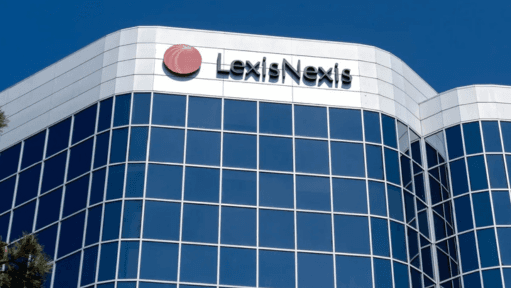
LexisNexis Defends Against Patent Infringement Appeal Over Lawyer Billing Software
Ongoing Case Could Set Precedent for Software Patent Law and Impact the Legal Tech Industry
In an ongoing legal battle, LexisNexis, a leading provider of legal software and data analytics, is defending itself against a patent infringement appeal related to its lawyer billing software. The case, which has garnered attention within the legal and tech industries, revolves around proprietary technology used in time-tracking and billing solutions for law firms—a critical tool in modern legal practice management.
Background of the Dispute
The dispute originated from a lawsuit filed by a rival company, claiming that LexisNexis’s software infringes on their patented billing and time-tracking technology. The plaintiff argues that specific features within LexisNexis’s software replicate patented methods for logging billable hours, tracking work tasks, and invoicing clients. The allegations suggest that LexisNexis's software infringes on key aspects of the plaintiff’s intellectual property, including unique algorithms and user interface designs that streamline the billing process for legal professionals.
LexisNexis initially succeeded in court, with the lower court dismissing the claims. The court held that the contested features were either generic or represented common practices in the field, thus not qualifying for patent protection. The ruling underscored a rising judicial skepticism around patents that protect broad methods or abstract ideas, particularly within software applications.
Grounds for Appeal
Following the dismissal, the plaintiff appealed, arguing that the lower court failed to recognize their patent's specific innovations and the unique implementation of certain billing algorithms. The appeal contends that LexisNexis's use of time-tracking features represents a clear overlap with the patented technology, pointing to the similarity in how the software records, categorizes, and invoices billable hours. The plaintiff claims that these functions, which are central to efficient law firm operations, were developed and patented well before LexisNexis introduced its product to the market.
LexisNexis’s Defense
LexisNexis, for its part, maintains that its billing software was independently developed and incorporates general functionalities that are common within legal billing solutions. The company argues that the plaintiff's patent is overly broad, covering basic methods that should not fall under patent protection. LexisNexis further asserts that recognizing such a patent would unjustly restrict competition and innovation in legal tech, where billing software has become essential to practice management.
In their defense, LexisNexis points to recent judicial interpretations, particularly those from the U.S. Supreme Court, which have narrowed the scope of patentable subject matter in software cases. LexisNexis contends that its software does not replicate any proprietary features unique to the plaintiff's patent but rather employs general, unpatented practices prevalent across the industry.
Legal Implications and Industry Impact
The outcome of this appeal holds significant implications for both patent law and the legal technology industry. Should the court favor the plaintiff, it could broaden the scope of patent protections for software, potentially impacting competitors and smaller tech firms developing similar products. Such a ruling may encourage companies to seek patents on broadly defined functions, increasing litigation risks across industries reliant on software-based solutions.
Conversely, a ruling in favor of LexisNexis could set a precedent for a more restrictive interpretation of software patents, encouraging innovation without the threat of litigation over basic or generic software functions. Many in the legal tech space are closely monitoring the case, as it could shape the future of software development in the legal industry, where efficient billing solutions are critical to operations.
Looking Ahead
The appellate court's decision will likely hinge on the nuances of patent law, particularly the distinction between specific, patentable innovations and generic methods. The legal community awaits a decision that could clarify the boundaries of patent eligibility in software, potentially reshaping the landscape for legal tech providers. A ruling is expected to provide further guidance on how courts interpret software patent claims, especially in fields that rely on established, industry-standard functions.
As this case unfolds, it serves as a reminder of the complexities and challenges in balancing intellectual property protections with the need for a competitive, innovative market. For LexisNexis, the stakes are high; a favorable ruling would allow it to continue offering its popular billing software, while a loss could compel changes to its product or significant financial implications. The decision will undoubtedly resonate throughout the legal tech sector, influencing how companies approach the development of essential tools for law firms in a rapidly evolving digital age.